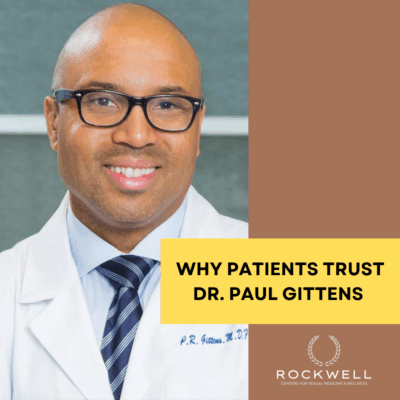Low libido, or diminished sexual desire, is a common concern among women, particularly as they age or undergo hormonal changes such as menopause. Studies indicate that approximately 10%-15% of adult women may experience hypoactive sexual desire disorder (HSDD), characterized by a lack of sexual desire accompanied by distress. Testosterone, commonly recognized as a male hormone, also plays a crucial role in women’s health, particularly concerning libido, arousal, and energy levels. For women experiencing diminished sexual desire and vitality, testosterone therapy, including pellet therapy, has emerged as a treatment option.
Understanding Testosterone’s Role in Women
While women produce lower levels of testosterone compared to men, this hormone significantly influences sexual desire, arousal, and overall energy. Research indicates that testosterone therapy can effectively treat hypoactive sexual desire disorder (HSDD) in postmenopausal women, leading to improvements in sexual function, including increased frequency of sexual activity, orgasm, arousal, and satisfaction.
Exploring Treatment Options for Low Libido
Addressing low libido involves a multifaceted approach tailored to individual needs and underlying causes. Several strategies have been identified to enhance sexual desire and overall sexual health:
Lifestyle Modifications: Incorporating stress management techniques, maintaining a balanced diet, ensuring adequate sleep, and engaging in regular physical activity can positively influence libido.
Counseling and Therapy: Psychological factors, including stress, anxiety, and relationship dynamics, can significantly impact sexual desire. Sex therapy or counseling can help address these issues, fostering improved communication and intimacy between partners.
Medications: Approved treatments like flibanserin and bremelanotide have been developed to address low sexual desire in women. Bremelanotide, for instance, is administered via injection and has shown efficacy in premenopausal women with HSDD.
Hormone Replacement Therapy (HRT): Depending on the phase of life a woman is in, HRT may help. For younger women, testosterone therapy may be beneficial. Later in life, HRT may include testosterone, estrogen, and progesterone supplementation, which can alleviate menopausal symptoms that may contribute to decreased libido. Additionally, testosterone therapy has been explored as a treatment for HSDD, with studies suggesting it can improve sexual desire in postmenopausal women.
Testosterone Pellet Therapy: A Focused Approach
Among hormone therapies, testosterone pellet therapy is another form of hormone treatment often used for women experiencing low libido. This method involves implanting small pellets under the skin, which release consistent levels of testosterone over time. The steady hormone delivery aims to reduce fluctuations that can occur with other administration forms, potentially leading to improved sexual desire and energy levels.
Benefits of Testosterone Therapy
Clinical studies have demonstrated that testosterone therapy can lead to significant improvements in various domains of sexual function for postmenopausal women. These benefits include enhanced libido, arousal, and overall sexual satisfaction. Additionally, some women report increased energy levels and improved mood, contributing to a better quality of life.
Considerations and Potential Side Effects
While testosterone therapy offers notable benefits, it’s essential to consider potential side effects. Some women may experience effects such as acne and hirsutism (excessive facial or body hair growth). However, these side effects are generally mild and may vary depending on the dosage and individual response. At Rockwell Centers for Sexual Medicine, we mitigate these side effects by tailoring our therapy to the individualized needs of the patient. Long-term safety data is still limited, underscoring the importance of regular monitoring by healthcare professionals.
Rockwell Centers for Sexual Wellness: Supporting Women’s Sexual Health
At Rockwell Centers, we understand the complexities surrounding women’s sexual health and the impact of low libido on overall well-being. Our comprehensive approach includes:
Personalized Assessments: We conduct thorough evaluations to identify the underlying causes of low libido, considering hormonal levels, psychological factors, and lifestyle influences.
Tailored Treatment Plans: Based on individual assessments, we offer customized treatment strategies, which may include hormone therapies such as testosterone pellet therapy, counseling services, and lifestyle modification guidance.
Ongoing Support and Monitoring: Our team provides continuous support, regularly monitoring progress to ensure the effectiveness and safety of treatments and making adjustments as needed to optimize outcomes.
By integrating evidence-based therapies with compassionate care, Rockwell Centers is dedicated to empowering women to reclaim their sexual health and enhance their quality of life.
In Conclusion
Low libido is a prevalent issue among women, but various treatment options, including lifestyle changes, counseling, medications, and hormone therapies like testosterone pellet therapy, offer promising solutions. Consulting with healthcare professionals, such as those at Rockwell Centers for Sexual Medicine and Wellness, can provide personalized strategies to effectively address low libido and improve overall well-being.
Visit us at any of our locations near Philadelphia, PA, Allentown, PA, or Manhattan, NY (across the street from Grand Central Station). Call us at 610-668-8300.













